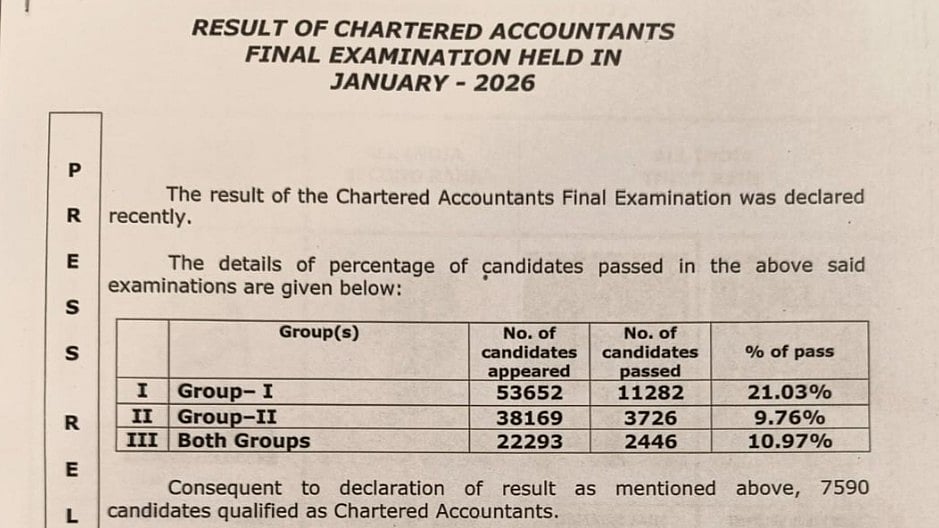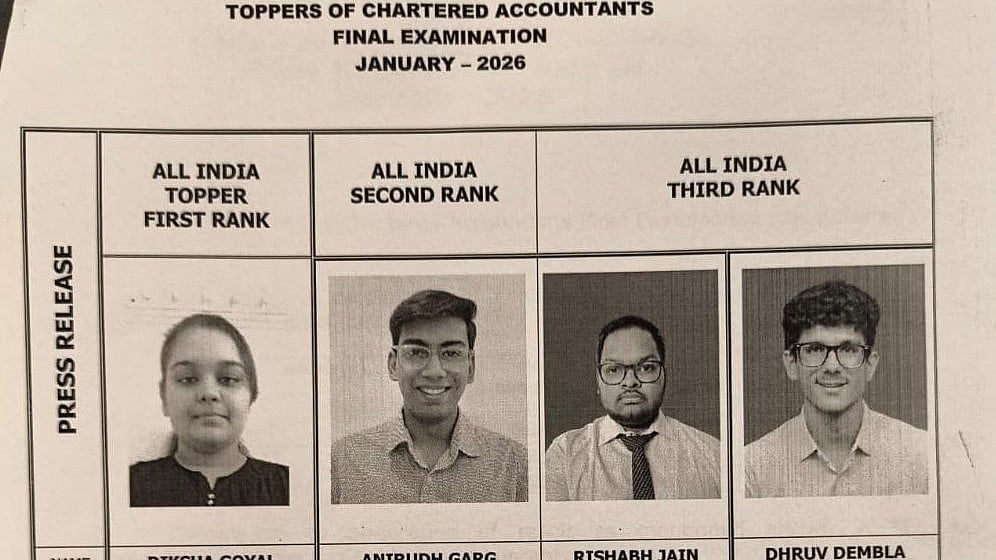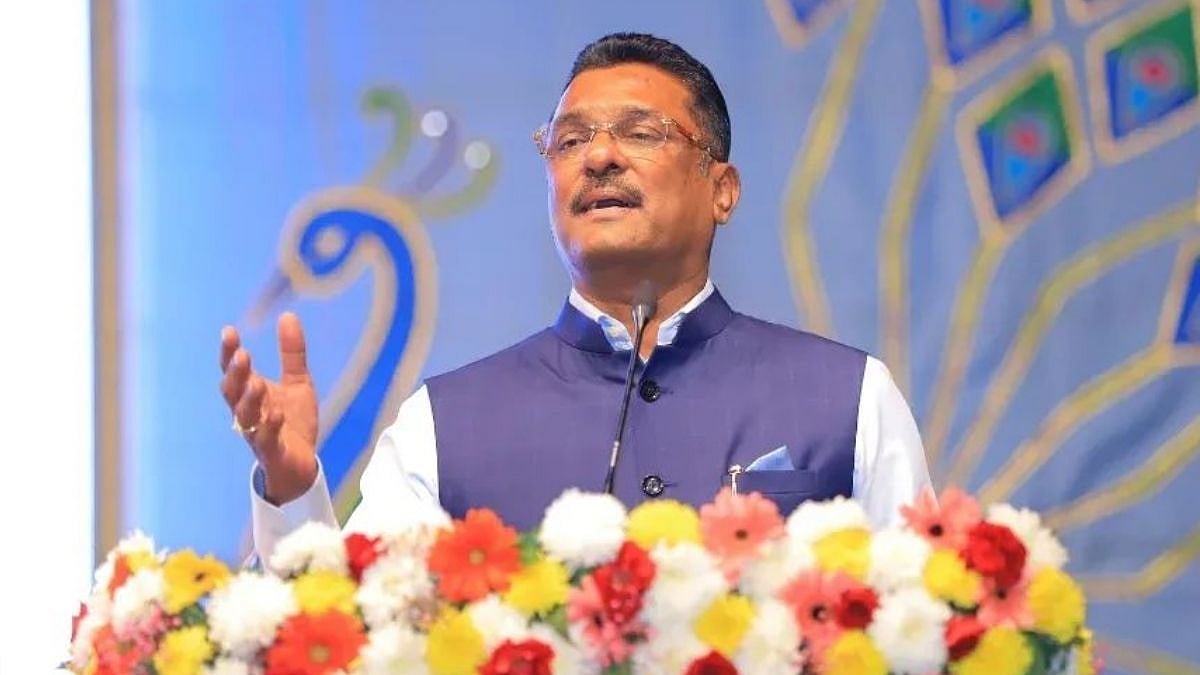The way the global report on press freedom was played up, one can’t disagree with the BJP calling the Indian media lackeys of the Western media. Where was the need to rely on the global index published by the Paris-based Reporters Without Borders when hundreds of your own brethren are being locked up under trumped-up charges ranging from sedition to spreading infectious diseases? And, why look at journalists when humourists are being targeted. Vir Das, Munawar Faruqui, Kunal Kamra, Shyam Rangeela… the list of comics in trouble for speaking about the emperor’s wardrobe malfunction is growing longer.
Faruqui, in fact, said nothing. He was arrested before he could even crack a joke. Thought police? The stand-up comedian was released from captivity after two months when the police could no longer justify his arrest for ‘hurting religious sentiments’.
With this kind of notoriety, the Bengaluru police did not allow Faruqui to hold shows for fear of right-wing violence. For good measure, they kept out Kamra too; perhaps they feared a laugh riot. Another stand-up, Vir Das had FIRs registered against him across the country for a six-minute monologue on the contradictions in India. He was accused of maligning India’s image and making derogatory statements against women.
Where is the need for the Indian media to latch on to a Western report on press freedom when a Gandhian like Harsh Mander was sought to be prosecuted for hate speech while the man whose election plank was, ‘Desh ke gaddaron ko..’, preaches moderation to the Muslims as the I & B minister. Mander, whose Karwan-e-Mohabbat, revisiting the victims of the lynching frenzy, was an excellent healing initiative, was subjected to Enforcement Directorate raids. The Indian media did not go to town saying that a man who should be feted was being fettered.
What is the need to harp on the findings of a foreign agency when Indian journalists like Aakar Patel and Rana Ayyub have look-out notices for them at airports while big-time economic offenders such as Vijay Mallya and Nirav Modi fly out with 80 suitcases?
Where is the need for looking westwards for validation when there is prima facie evidence of the Indian government using the weapons-grade Pegasus software to spy on journalists? The Pegasus episode is likened to Watergate but that was just a break-in ordered by the Nixon administration at the rival party’s office to get some ‘incriminating evidence’. Today, such evidence can not only be stealthily extracted from the mobile phone of the target but it can also be planted in his/her phone or laptop. Tests conducted by Arsenal, an independent US lab, on the laptops of two tribal rights activists arrested in the Bhima-Koregaon case show that the ‘incriminating evidence’ was planted in them. After the initial excitement, the Indian media is silent on Pegasus.
More than a dozen human rights activists, academics, and dissenters – all branded urban naxals -- are rotting in jail for three years without a trial after being arrested under the draconian anti-terror law UAPA based on such ‘incriminating evidence’. One of them, Fr Stan Swamy (84), died in custody because of medical neglect. Now, another one, Gautam Navlakha (70), is going the same way. This seems to be a deliberate strategy of the regime to show left-leaning intellectuals their place. The statement of the Editors’ Guild of India condemning the use of Pegasus for spying on citizens as a “brazen and unconstitutional attack on the freedom of speech and the press," was buried in the inside pages of national newspapers.
It is laughable to see the Indian media use the shoddy stuff by Reporters Without Borders as a battering ram against the Modi government when the man himself has given them so much ammunition. He has redefined secularism, patriotism, and ‘modified’ human rights too. Speaking at the 28th Foundation Day of the National Human Rights Commission on October 12, last year, the PM said that human rights matter to people only after their basic needs are met. Brushing aside the Lakhimpur Kheri incident, where his cabinet minister’s son mowed down protesting farmers, as a political incident, he alleged that “some people are tarnishing the image of the country in the name of human rights violations through their selective behaviour’’. Taking a cue from him, his party denies that journalists are being targeted and avers that much of what is happening is part of "orchestrated propaganda" against the government.
What further evidence do you need when one of the PM’s closest aides says that civil society is the new frontier of war and can be subverted to harm the nation? The words of the Editors’ Guild in the Pegasus episode encapsulate the situation: "This act of snooping essentially conveys that journalism and political dissent are now equated with terror".
Citing a half-baked report only gives outfits such as OpIndia, an Indian right-wing news portal, the opportunity to pan it as a “biased index tailor-made to peddle the global left's narrative."
If our mainstream press was not playing a “both-sides game” to appear objective, it would rebut the government’s claim with facts and figures. Of 154 Indian journalists arrested or facing government hostility for their professional work between 2010 and 2020, more than 40 per cent were in 2020 alone, an analysis by the Free Speech Collective, an advocacy group, found. According to a study by Geeta Seshu of the collective, 67 journalists were arrested and nearly 200 physically attacked in 2020.
Apart from self-censoring news, the Indian mainstream media is uncomfortable with columnists who are anti-establishment. Historian and writer Ramachandra Guha withdrew his fortnightly column in the ‘Hindustan Times’ after it dropped one of his pieces. All the same, every mainstream newspaper carries editorial pieces by political leaders.
The Indian media just has to remember the chronology. First, the government went after the liberals, calling them ‘libtards’, then academics were branded as anti-nationals, next journalists were derided as presstitutes, later activists were mocked as ‘andolan jeevis’ and ‘urban naxals’. Finally it came down to comedians. Even Kangana Ranaut who called the Father of the Nation M K Gandhi a ‘feku’ and termed India’s freedom struggle ‘bheekh’, accused Vir Das of ‘soft terrorism’. We are a nation that sends gangsters to Parliament and gagsters to prison.
(The writer is an independent journalist based in Mumbai and writes on civil society, law enforcement, environment and urban development. He tweets at @anilsingh703)




